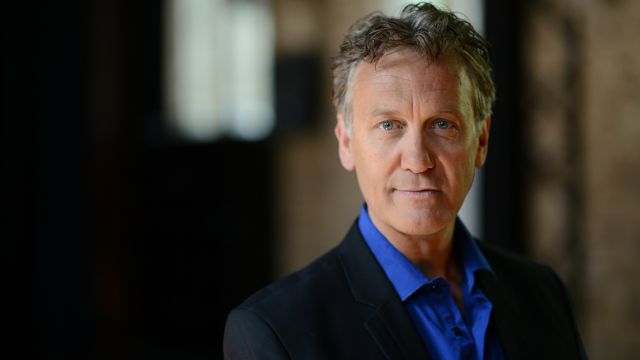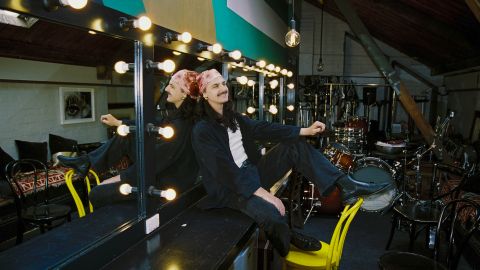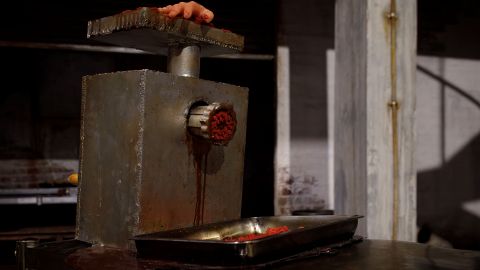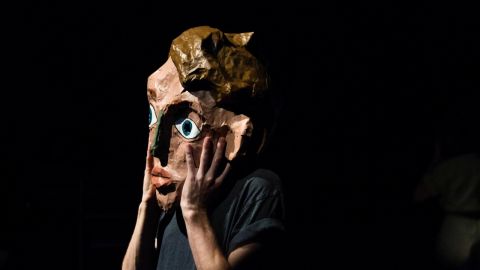What Every Actor Needs to Know

Dean Carey, from Actor’s Centre Australia, is a releasing a new book which maps a unique path for artists.
Art should always go the extra mile, far beyond ordinary. Likewise education should be both inclusive and robust - allowing everyone to uncover information and insight leading to a fuller and richer connection to their sense of themselves and their unique expression. Time is a gift and investing time in one's own sense of purpose and promise is the greatest gift.
This is Actors Centre Australia's mission and this creative organisation thrives on a vibrant, diverse, rigorous and explosive environment. Art creates meaning and humans require expression. The intersection of the performing arts and people's potential has always been my drive and inspiration. I began my professional career at 17 and at 27 I opened the doors of ACA as I wanted Sydney to have a new artistic hub.
More than 30 years later ACA is more creative than ever. Programs are expanding and we're sharing our brand of education and inspiration. In our new purpose built 12 million dollar performance facility we are launching programs for youth, and we are going to transform the piazza (which surrounds our school) with brilliant light and entertainment. Art thrives on, as the expression of all we dream of and aspire to. I am very proud to call ACA home.
My new book, to be published by World Scientific Publishing, is all about the actor’s engine: What every actor needs to know.
I believe there are three critical components under the hood of each actor and each one has its own responsibilities, tasks and skills. If any one of them goes missing in action or confuses its duties, the sound of crunching metal will be the result. Be warned.
Welcome to M.A.P. (c)
Let’s start in reverse, as we’ll find that’s the order of priority.

P = person. That’s you. That’s me. With all of our preferences, prejudices, loves, fears, foibles, eccentricities, pot holes, wounds, worries, unmet needs, expectations, beauty, heart, desires and dreams. Then we have our:
A = artist. That’s the creative juice and drive inside each of us which is connected, courageous, vulnerable, exposed, searching, child-like, inquisitive, willing, wilful, wild, dangerous, impulsive, instinctive, free-thinking, valiant, committed, driven and at the service of all that’s asked of him or her. Finally:
M = manager. This is our business manager and coach: grounded, logical, practical, protective, forward thinking, alert, responsive, adult, supportive, flexible, adept, thick-skinned, level-headed, rational, realistic.
All three should be alive, in action, in balance and present when required.
On opening night when the party is in full swing who takes you home at 1am because you have a matinee the next day? Your manager. You and your creative artist are having a ball and would stay until long after last drinks. You couldn't rely on either of those two voices to keep their feet on the ground. Nor should you. But someone has to. Therefore your manager helps you make your timely exit.
When there’s a breakdown backstage within the ensemble or between you and the production company and you’re walking into an office for a difficult conversation, the last person who should go in is YOU. Nor does your creative artist head in, ready to pick up the gauntlet and prepare to fight the good fight. Both of these parts of you are not equipped nor poised to take on the challenge. But your manager can. And should. And will. And does.
After a casting has gone wrong - a rejection, a failure, an insult or injury – anything that would have you come down on yourself like a ton of bricks or wish to rail at the universe – your manager is there to pick up the pieces and drive you home. It doesn’t mean you don’t acknowledge and honour the feelings which deserve to be heard, but your manager will step in, when required and when it’s the right time, and get you back on course and back in the saddle. Your wounded creative artist can’t and shouldn’t be expected to. But your manager can, and will.
After the word ‘Cut’ is announced in a casting (which seemed to be going great) and your creative artist is open, vulnerable, sensitive and unprotected, you hear the director express, “No, I’m sorry but that’s not what I think the scene is about at all,” the only person suitably equipped to have that particular conversation is your manager. He/she listens, discerns, enquires, gets to the heart of what the director wants, then ‘turns' to your creative artist, and with both thumbs up in the air says, “Over to you. Go for it.” And then your creative artist switches on and embraces the redirection fully and completely.

Are artists suffering then from multiple personality disorders? No. We simply play multiple roles every day in various ways: son, lover, employee, party animal, confidant, protector, advisor, poet, mate. We simply access various parts of our energy field, knowledge and abilities as required. You see one caller ID on your cell phone and you take the call immediately and willingly. Another caller ID and you might REJECT the call, pushing your phone out of reach. With each incoming call we have to decide whether we can access that particular part of ourselves which is required to engage with that person. It doesn’t mean we won’t get back to them, we most likely will, but only when it is appropriate and possible to access the particular energy field within which that relationship resides.
Conclusion: actors need all three components outlined above to be in balance, to be active or silent at the correct times, and for each to be responsible for themselves. The ‘P’ part of you – you the person – also needs comfort, companionship, nourishment, inspiration, connection, passion and bliss, in addition to the needs of your creative artist and manager.
My big message: you are NOT your career. You also have a life, friends, family, personal goals to grow and stay healthy, adventures to have, beauty to hold, love to make, love to share. Let your creative artist and manager take care of the career. It’s not that you don’t care or aren’t also connected, but each component needs to be respected, kept in balance, nurtured and fuelled.
Therein lies a sustainable, healthy, long and hopefully happy career.
This is my 41st year working professionally in the industry I love and I feel as passionate, as curious, and as committed as ever. Onwards!
Dean Carey, 2018.





